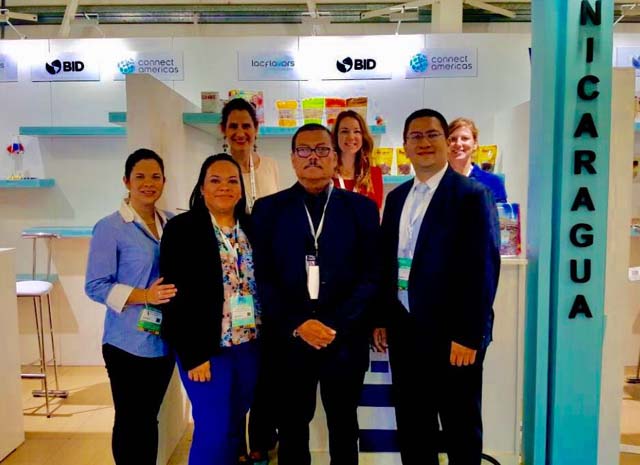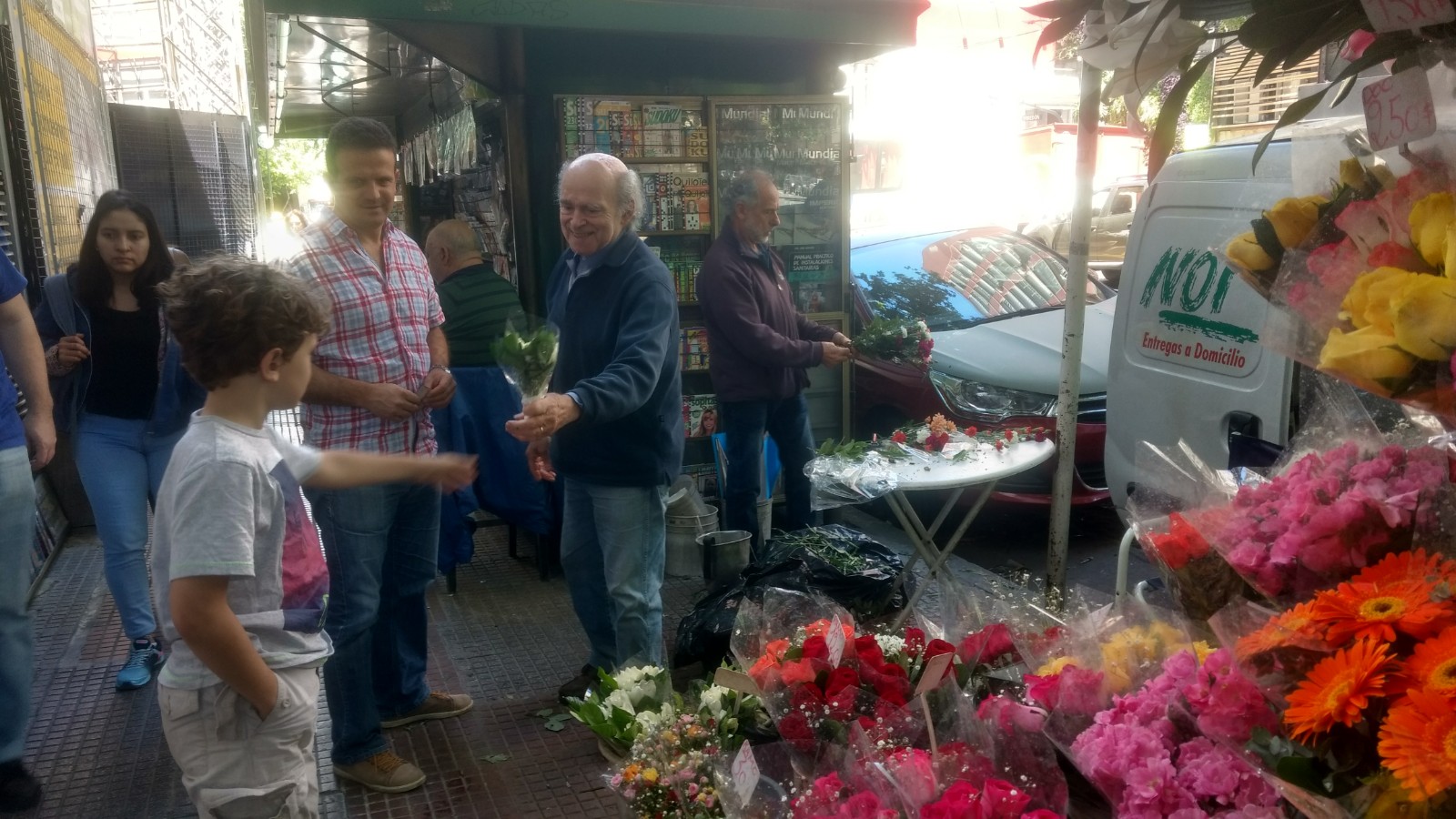This past week Twin Engine Coffee had the unique opportunity to present at LAC Flavors 2017 in Buenos Aires, Argentina. This 9th annual program is funded by the Inter-American Development Bank (public development sector) to connect international food buyers with small and medium Latin American and Caribbean food companies. Twin Engine Coffee was 1 of 4 food companies that represented Nicaragua.
For me, participation in the event was meaningful on a number of levels. As a co-founder and floatplane engine A, it was a remarkable opportunity to travel to Argentina and show potential buyers what Twin Engine Coffee (Nicaragua) has to offer. Though the opportunity struck much deeper chords.

Nicaraguan Companies in Booth with Ambassador
In my Food Systems work with the United Nation’s Food and Agricultural Organization, I spent much of my time advising/arguing/espousing to anyone that would listen about how important it is for the public sector to support small and medium food companies. To help developing countries’ food sectors move forward, to form the fabric of a quality-seeking, trust-creating domestic food systems. This is especially key in countries that have historically exported their highest-quality goods as commodities and need to create domestic food systems that can respond to changing urban populations and growing middle classes.
Then, Bam! There I was. Years later, I am a small, family-owned Nicaraguan bootstrapping coffee company that is receiving a little help from the public development sector to do just what I had hoped for when I was one the other side of the table. Whether we were able to make a big sale or none, it was a privilege to be in the midst of the buying and selling buzz that makes international food systems move and development happen. It was a privilege to be involved in LAC Flavors, where the public development sector was investing in practical connection between businesses across sizes and across countries.

Flower vendor in Buenos Aires
Finally, at the root of this experience is astonishment that has yielded some personal pride. Five years ago, my (not so great) Spanish language skills were being put to the ‘sink or swim’ test as we created a Nicaraguan business on our own. It was intense, it was exciting, and it was ugly all at the same time. Fast forward to November 2017. We are able to participate in the Spanish-speaking business community that has a unique culture of its own. With my ‘not so perfect’ Spanish, I am able to sit one on one, share stories, sell a little coffee, and be part of a culture that I never knew before. On the first day of meetings, I was a bit teary-eyed in this realization. Quickly recovered though—tears don’t sell coffee.



